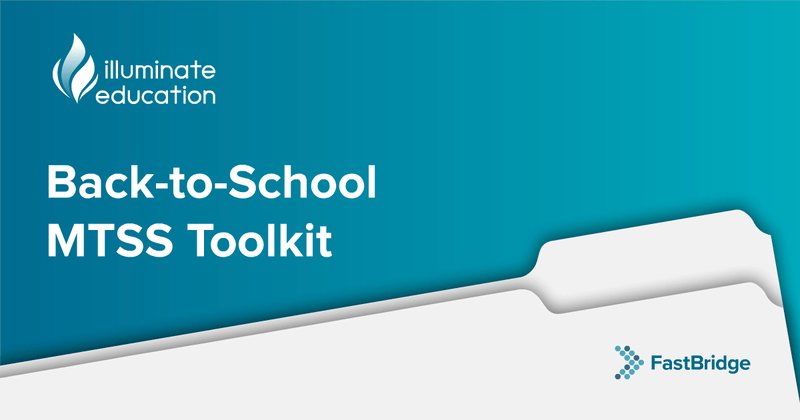By: Louise Vojtisek, M.A., NCSP
There is good evidence to support that most children who are identified as learning disabled have difficulties in the area of reading, and that these difficulties are typically not identified until third grade. An ongoing challenge for educators is figuring out which students with reading difficulties have a true learning disability and which ones can develop effective reading skills as a result of different reading instruction. This challenge sheds light on the importance of prevention through early intervention, and that reading instruction in the early grades is a highly specialized area with a different focus than in later school years.
The convenient reality of K-2 literacy instruction is that everyone must master the same skills in order to decode single words quickly and accurately. Proficient single word reading, the ultimate literacy goal during the K-2 period, is associated with the following skills:
Phonemic awareness: The ability to perceive that words are made up of separate sounds. Phonemic awareness includes skills such as blending or segmenting phonemes, identifying a specific phoneme in a word, or sorting words into categories of similar phonemes.
Phonics: This skill involves print and focuses on learning the sounds that correspond with letters.
Fluency: Automatic and immediate word and sentence-level reading.
A good screening tool will determine which children are proficient in specific foundational skills and, therefore, likely to meet end of year literacy benchmarks. Screening will also highlight the foundational skills that some student lack, and these will continue to be obstacles to proficient reading skills if left unaddressed.
The Formative Assessment System for Teachers (FAST™) provides an earlyReading assessment suite that screens a young student’s foundational skills in the core areas of phonemic awareness, phonics, and fluency. Screening is typically done three times a year, each time using four brief measures that are associated with literacy development at that point in the school year. Beyond the four, a teacher can administer any of the other measures as needed for further diagnostic information. The earlyReading sub-tests, grouped within core areas, include:
Phonemic Awareness: Onset Sounds, Word Rhyming, Word Blending, and Word Segmenting.
Phonics: Letter Names, Letter Sounds, Decodable Words, Nonsense Words
Fluency: Sight Words, Sentence Reading, CBMreading of connected text.
Establishing a multi-tiered system of instructional support that provides each student with what he or she needs at that point in literacy development is the best way to help all students become effective readers. This can be done by using balanced and differentiated instruction derived from with regular review of actual student performance data rather than the recommendations from a curriculum. FAST provides some very helpful tools that expedite the process of using earlyReading screening results to inform intervention groupings. One is the “Screening to Intervention Report,” and the other is a flow-chart titled “Guidance for Progress Monitoring Reading Skills.” The most important starting point for balanced and differentiated instruction is to create instructional groups that have a specific, identified focus, and use evidence-based practices delivered with fidelity and adequate dosage. The FAST reading assessments include tools for screening all students, and regular progress monitoring of those at risk of reading problems to determine if a student’s skills are improving or if an instructional change is required.
Given that we know the developmental sequence of skills all beginning readers need to master, it makes sense to develop intervention strategies proactively and have them ready to implement as soon as screening is completed and data are analyzed. Below are some tips for planning intervention groups, even before you embark on screening:
- Gather colleagues from the data team, interventionists, grade level teachers, or other personnel who provide literacy instruction in your school. It is important to have everyone involved and committed to the same goal: improved student outcomes. There may be areas of philosophical disagreement, but everyone recognizes that consensus is critical. For this reason focus on having team members adopt a core set of practices, and, if needed, agree to “live with” certain activities they may not fully embrace until data are available to indicate if the practices work.
- Invite your building administrator to selected team meetings so s/he understands the process and the goals you want to accomplish. Often, an administrator can facilitate a project by removing obstacles and authorizing resources that will make your job easier.
- Work on reading instruction planning when there is time to have thoughtful discussion and the possibility of making choices and decisions in a reasoned manner. For example, such meetings could be held at the end of the school year during scheduled work days, or during a dedicated in-service day so that there is adequate time to consider all perspectives. Prepare some materials for participants to review online before the meeting in order to make the best use of time.
- Select interventions from evidence-based curricula or materials you already own. There are up-to-date books and websites with guidance about evidence-based interventions, and some of these are listed at the end of this article.
- Consider who in your school is already trained to provide specific, evidence-based interventions. Think about others who would be good candidates for training based on their backgrounds and expressed interest. Paraprofessionals are often excellent choices to provide interventions, and the opportunity to receive specialized training elevates their status and strengthens the team.
- Do not avoid evidence-based interventions that are scripted. Many of the foundational skills for reading are acquired rapidly when an intervention is implemented with a high degree of fidelity at the appropriate dosage. Scripted programs make it easier to achieve fidelity and dosage and can be implemented by a more diverse array of people because training needs are minimized.
We have learned so much about the development of reading skills over the last 30 years. There is a well-established body of research outlining effective instructional practices for all aspects of reading skills. The unfortunate reality about reading research is that too few classroom teachers know about it. FAST tools are designed to link research with more effective classroom practices. Below are specific resources that can be used to select and implement evidence-based early reading instruction.
Online Resources:
National Center on Intensive Intervention
The mission of this center is to build district and school capacity to support implementation of data-based individualization in reading, mathematics, and behavior for students with persistent learning and/or behavioral needs. The Center offers tool charts for academic and behavioral interventions and implementation/instructional support. It is an excellent site.
Center on Response to Intervention
The Center on RTI is a national leader in supporting the successful implementation and scale-up of RTI and its components. This site offers free information about the details for screening, progress monitoring, and instructional strategies. There are a number of archived webinars available as well.
RTI Action Network
This site is a joint initiative of many national organizations, including the National Center on Learning Disabilities which hosts the site. The Network is dedicated to the effective implementation of Response to Intervention (RTI) in school districts nationwide. The goal is to guide educators so that each child has access to quality instruction and that struggling students—including those with learning and attention issues—are identified early and receive the necessary supports to be successful.
Florida Center for Reading Research
A good basic source of research-based reading instruction materials The site is organized by age or grade and areas of reading. Teachers can download actual lesson plans and instructional materials.
Intervention Central
This site was developed and is maintained by Jim Wright, a school psychologist from Syracuse, New York. There are many free resources for RTI, academic, and behavioral interventions. The tools are teacher friendly and easy to use.
National Association of School Psychologists
Although you have to be a member of NASP to get full access, there is a good bit of information available for non-members as well.
Reading Rockets
This website provides free reading support tools for teachers and parents. The website is organized into sections for different users and includes free lessons and activities to promote early reading skills.
Books: The following are very up-to-date, accessible, and provide valuable information to bring effective, evidence-based interventions into the classroom.
Daly, E.J., III, Neugebauer, S., Chafouleas, S.M., & Skinner, C.H.. (2015). Interventions for reading problems: Designing and evaluating effective strategies (2nd Ed.). New York: Guilford Press.
Joseph, L. (2015). Understanding, assessing, and intervening on reading problems, (2nd Ed.) Bethesda: National Association of School Psychologists.
Kilpatrick, D. (2015). Essentials of assessing, preventing, and overcoming reading difficulties. New York: Wiley.
Louise Vojtisek is an experienced school psychologist who lives in Middlebury, Vermont. Her professional focus is prevention of learning and social-behavioral problems through early intervention. She has consulted with many districts in the implementation of screening and progress monitoring systems, and she enjoys working with teachers and administrators to build their skills in using data to inform classroom instruction and monitor the effectiveness of instructional programs at the school and district level. She is a member of the FastBridge Learning team as an affiliate trainer.™







